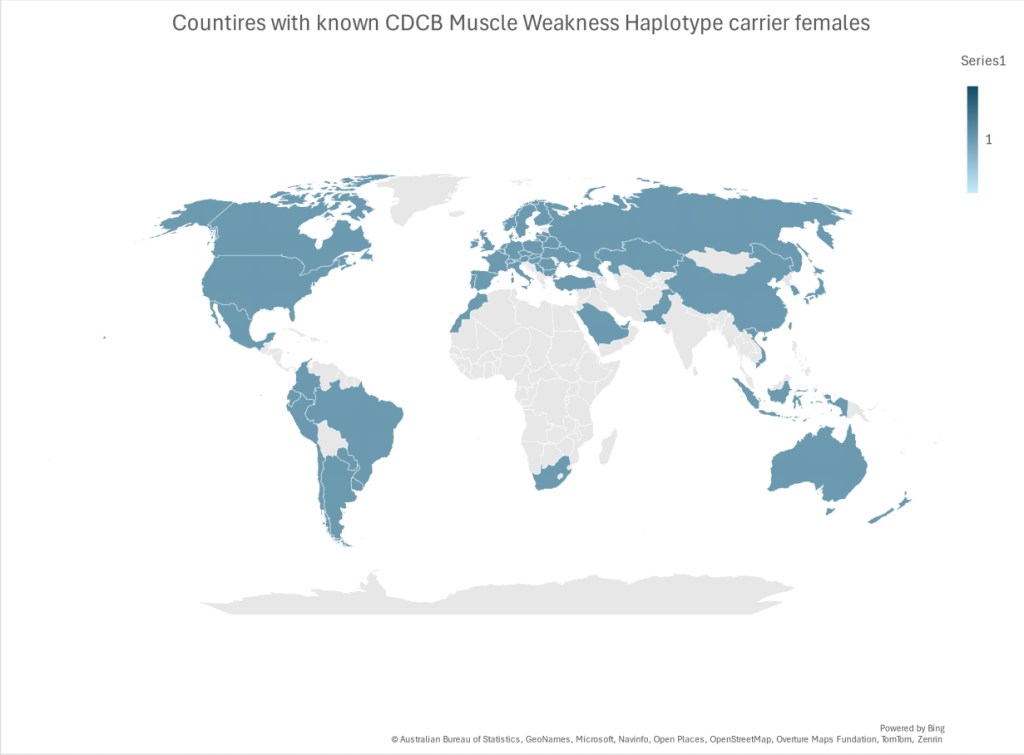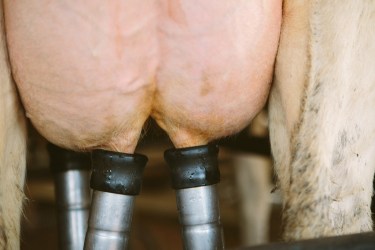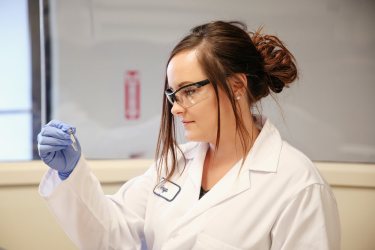The Facts about Early Onset Muscle Weakness Syndrome (MW) – Formerly Calf Recumbency
In 2022, a new Holstein genetic defect, Early Onset Muscle Weakness Syndrome (MW), was identified by
Pennsylvania State University (PSU), USA, in which the affected calves were unable to stand without assistance1. Realizing the impact this disease could have on the dairy industry, ABS collaborated with PSU and the USDA to identify the causative allele for MW, which located the CACNA1S gene 2 on chromosome 16.
ABS led the dairy industry by testing all our marketed Holsteins for the MW causative allele—regardless of location—and providing their carrier status to our customers. Recently, CDCB developed a haplotype test for MW (MWH) and provided this to all CDCB evaluated Holstein animals 3. Holsteins born in the early 1980s have been identified as carrying MWH.

While most reported MW-affected calves have been reported in North America, the alleles causing this disease are found globally. Based on CDCB’s MWH, carrier females have been identified in 49 countries across the globe (see image), and it is expected that this country list will grow as more animals are tested.
In late 2024, a South African dairy farmer contacted ABS about a concern regarding newborn calves who were unable to stand without assistance because of our efforts in MW research and strong relationship with multiple genomic labs. We arranged for the calves to be tested at one of the few labs offering the gene test. Unfortunately, the calves were confirmed to be homozygous for the MW causative allele, thus becoming the first confirmed case of MW in the country.
What are the Muscle Weakness Syndrome symptoms?
Affected calves are unable to stand without assistance at birth or lose the ability within the first 6 weeks of life. While some calves are able to recover and stand on their own, most do not survive—either failing to thrive or succumbing to secondary health issues. A small number of homozygous MW calves are unaffected and normal but can still pass this genetic defect to their offspring.
How can you reduce your Muscle Weakness Syndrome risk?
All animals carry multiple genetic defects (5-10, for reference), so you cannot just remove carrier animals to reduce your genetic defect risk. However, there are some steps you can take to greatly reduce the risk of having an MW-affected calf born.
- Ensure your genetic supplier provides the bull’s MW status.
- ABS has been testing all of our globally marketed bulls since early 2023, and these results are provided publicly on our website.
- Historically, ABS bulls would have their MW status published using data either from the gene test or their CDCB MWH result.
- Use a mating program like our Genetic Management System (GMS) to avoid mating MW carrier animals together while maintaining genetic progress in the herd.
- Record the pedigree of your females, especially their sire.
- GMS will use the female’s pedigree information to determine if she has an MW ancestor and, therefore, might be a carrier too.
How can you test your animals to see if they carry MW?
If you want to test an animal in your herd for the MW causative allele, ABS can help. Currently, only three labs in the U.S., one in Europe, and one in Japan offer this gene test. We are working with two other global labs as they also have developed MW causative allele tests.
Alternatively, you can genotype your animal at a CDCB certified lab and receive their MWH status along with their genomic breeding values.
What else is ABS doing to decrease MW risk?
When we decide which sire or dam to use in our genetic nucleus breeding program, we work to balance genetic progress while reducing MW frequency. Only about 4% of our currently marketed bulls carry MW, and fewer than 3.5% of our pipeline bulls over a year of age are carriers.
ABS Global is committed to ensuring we provide the highest quality genetics and will continue to work with experts across the industry as we all learn more about Early Onset Muscle Weakness Syndrome. ABS will continue to incorporate the results into our Bull Search and GMS systems. We will keep you posted as we learn more. If you have further questions or concerns about Muscle Weakness Syndrome, please don’t hesitate to contact your ABS Genetic Advisor.
Sources
- Identification of a putative haplotype associated with recumbency in Holstein calves. Dechow, C.D. et al. JDS Communications, Volume 3, Issue 6, 412 – 415
- New mutation within a common haplotype is associated with calf muscle weakness in Holsteins. Al-Khudhair, A. et al. Journal of Dairy Science, Volume 107, Issue 6, 3768 – 3779
- (2025, February 4). CDCB – Home. https://uscdcb.com/






